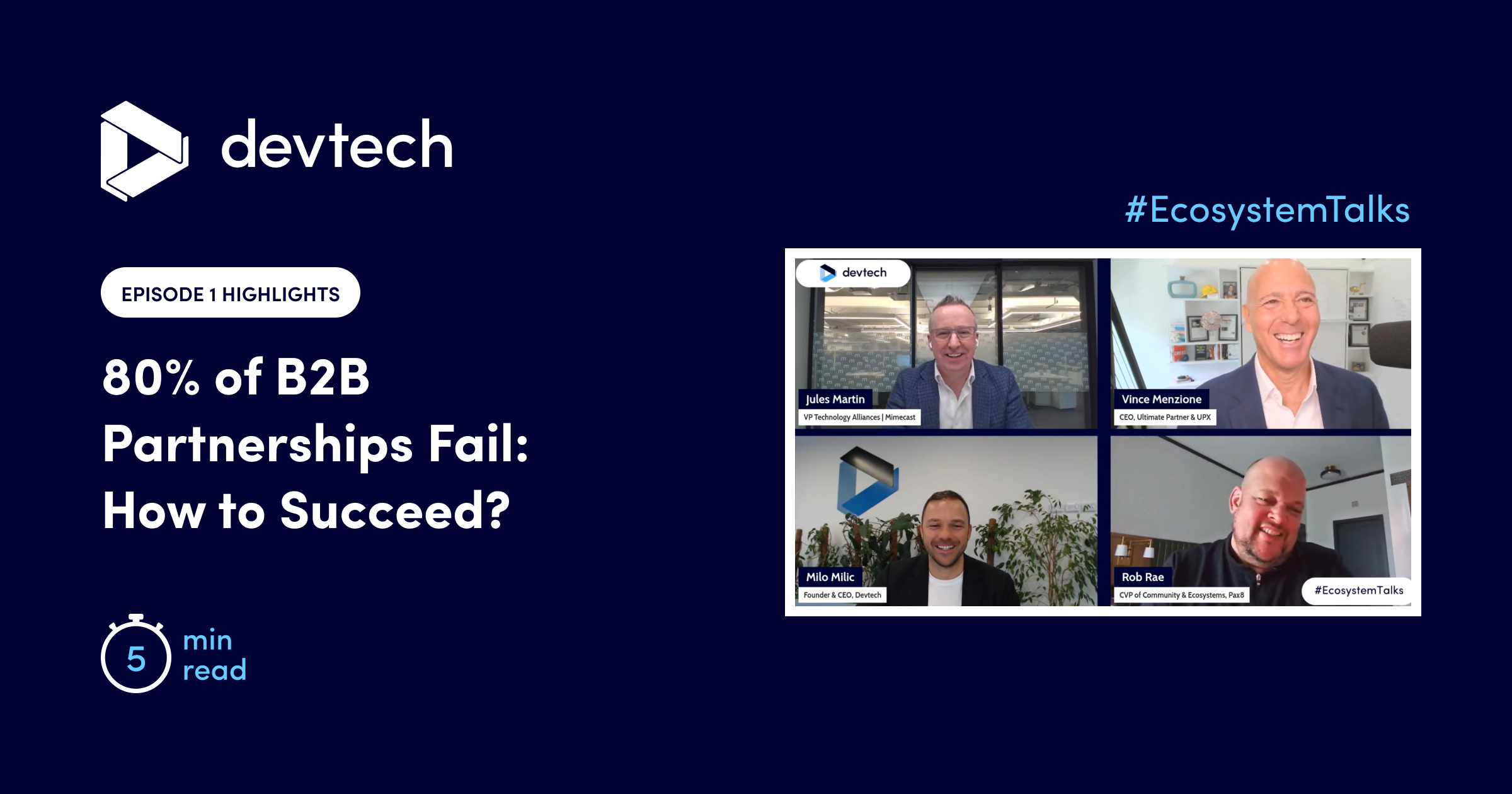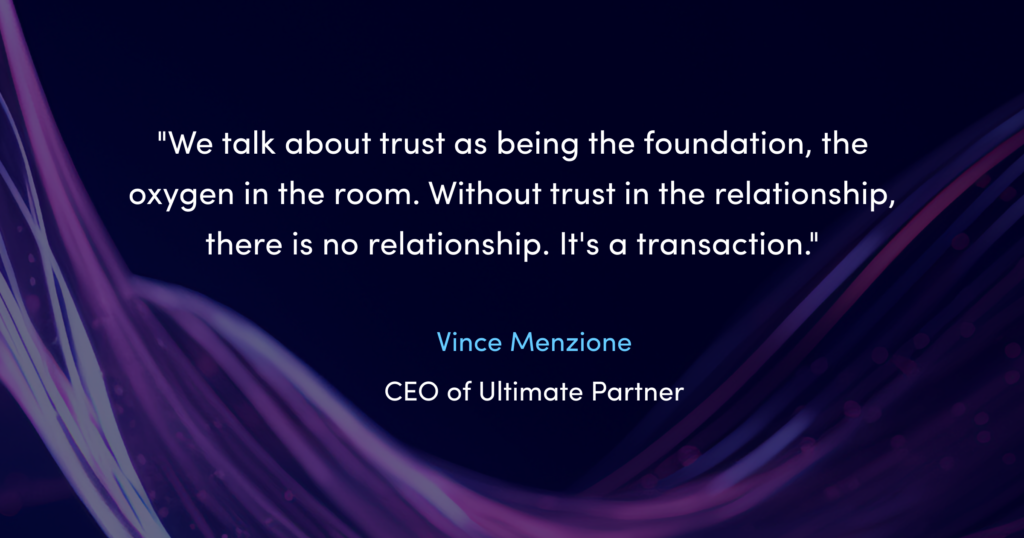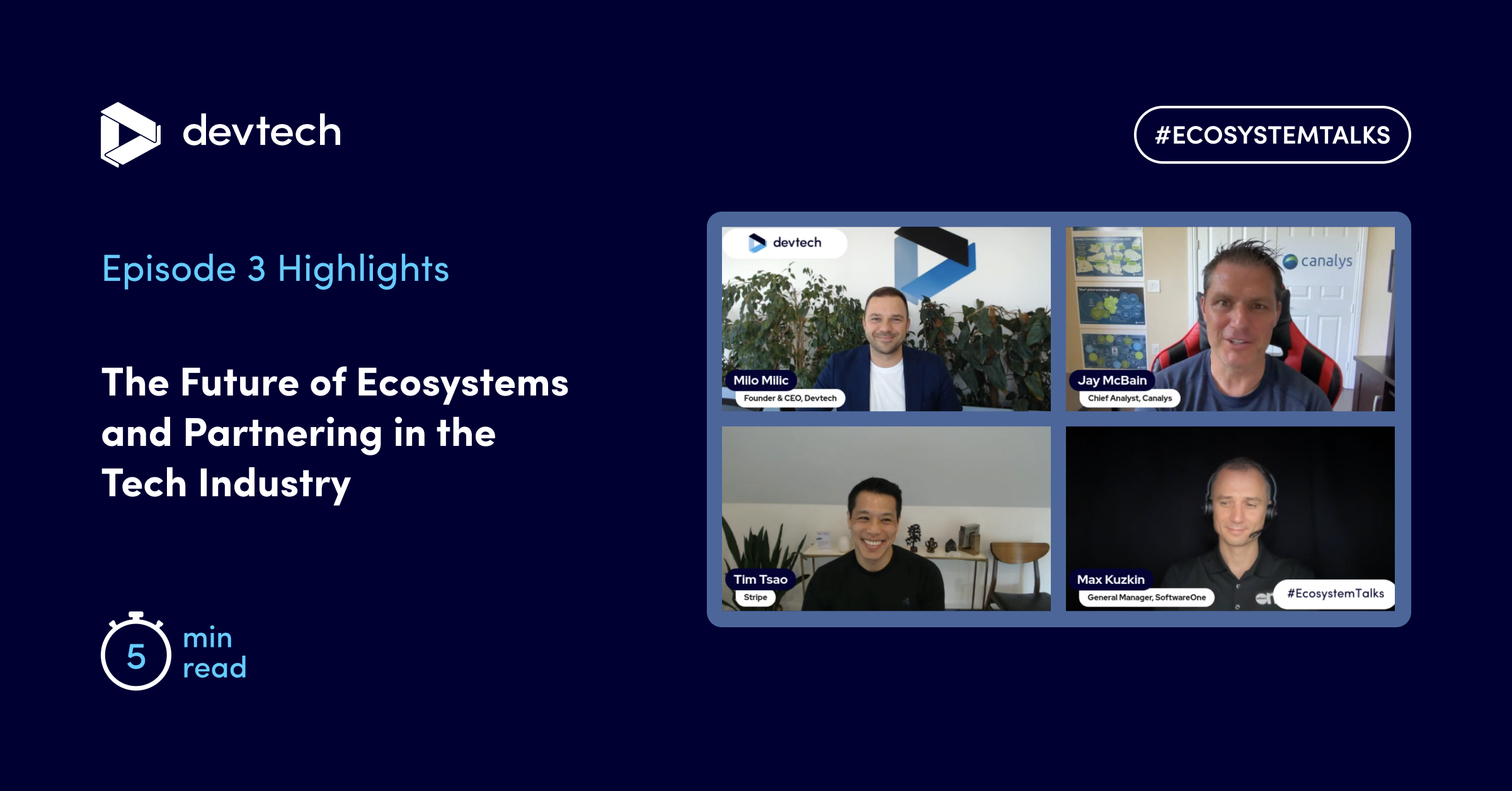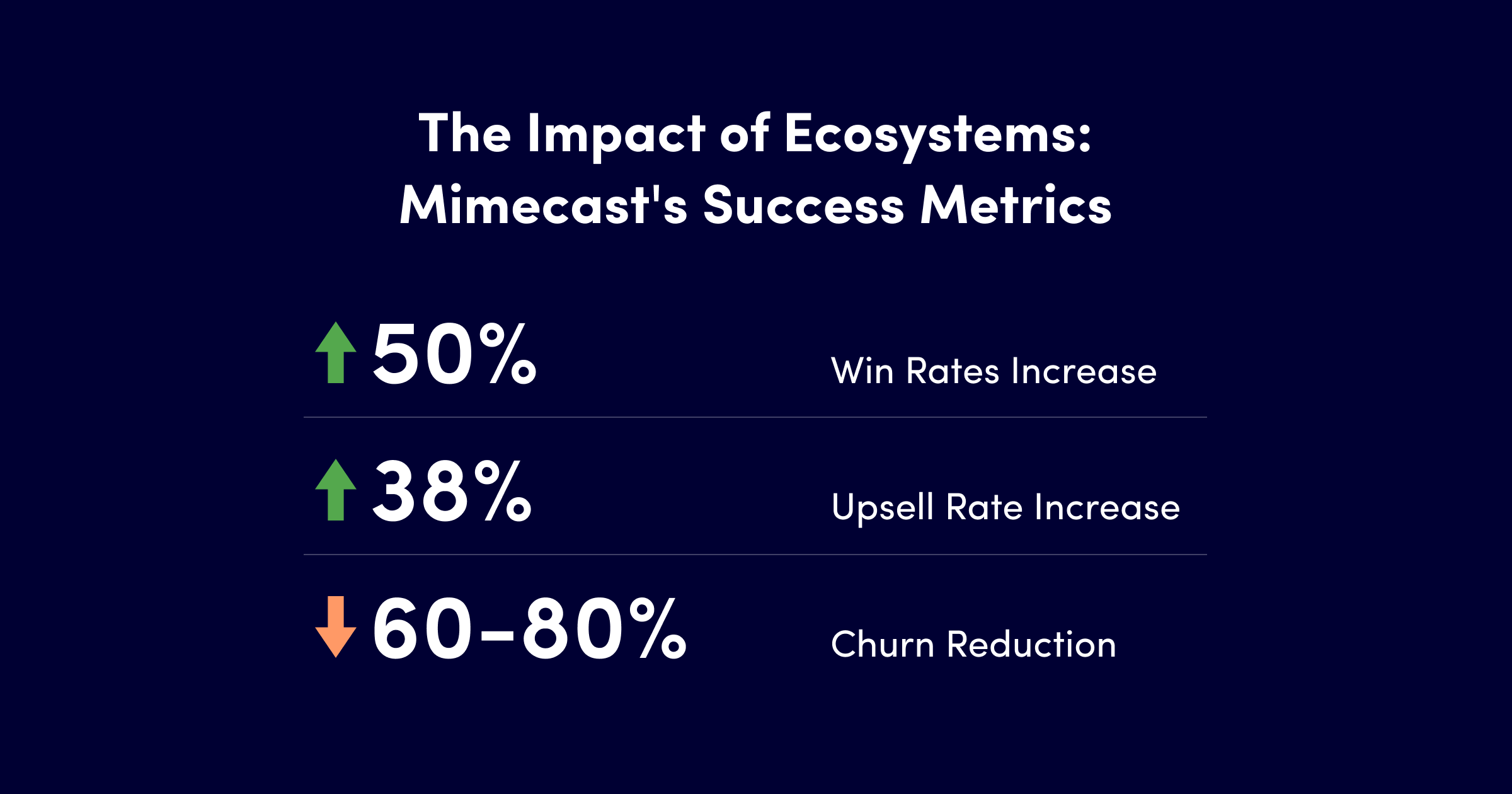In the first episode of Devtech’s #EcosystemTalks panel series, we’ve had the pleasure of hosting Rob Ray, CVP of Community and Ecosystems at Pax8, Julian Martin, VP of Ecosystem and Alliances at Mimecast, and Vince Menzione, CEO at Ultimate Partner.
One of the topics discussed was around the reasons most B2B alliances fail, offering insightful viewpoints and experiences worth reflecting on.
Deconstructing Partnership Failures
Gartner predicts that 80% of B2B sales interactions will occur in digital channels by 2025. Tech alliances stand at the core of many initiatives these days, often hailed as the cornerstone for mutual growth and market share expansion. However, a significant number of these partnerships do not achieve meaningful results.
KPIs to Measure Success
Julian Martin reflected on this issue, underscoring the critical importance of having key KPIs defined on how you are going to measure success (such as lead generation, number of co-sell opportunities, pipeline value generation, revenue won, etc.) and actively measuring them, making sure reasons for success are well understood.
Understanding the Customer’s Needs
Apart from the KPIs and metrics, Julian highlights the importance of understanding the customer’s perspective and what the customer wants, as no single solution will do everything.
The Right Organizational Focus
And, without a doubt, where channel initiatives sit inside the organization matters as well. At Mimecast, alliances and ecosystem initiatives had many different homes over the years: they were in “Strategy”, in “Product”, in “Product Marketing”, and more recently directly under CMO. This has been the turning point, as the world of marketing ecosystem for Mimecast was about lead generation, teaming up and co-selling together.
True Cost of Doing Business
Rob Ray shared insights around how often Managed Service Providers (MSPs) have a lack of understanding when it comes to cost of doing business in the channel, which ultimately hurts the viability of partnership and success. It’s about looking at the complete service delivery cost from an operational point of view, and ensuring you’re charging enough to offset your cost of partnering.
The Four Dysfunctions
Vince Menzione identified “the four dysfunctions” contributing to partnership failures: scarcity mindset, lack of executive commitment, insufficient proactive engagement, and a deficit of trust. These obstacles are critical to address for successful, long-term partnerships.
1. Scarcity Mindset
Organizations that believe in a scarcity don’t understand and embrace partnerships, and often times they would build walls around their IP thinking that’s how they will remain competitive. When Microsoft decided to focus on making partnerships a priority, and applied a more open, growth mindset, their stock went from $30 to $429 over a 10 year period.
2. Lack of Executive Commitment
Not investing to the right level of resources and dollar investments, and lacking executive commitment, often translates directly into these organizations not seeing the value in partnerships.
3. Insufficient Proactive Engagement
Often times, businesses are not aggressive enough in pursuing their channel strategy. This is especially true in working with hyperscalers, where organizations expect a role of “partner manager” to do the job for them, and they are not proactive and aggressive enough in their engagement.
4. Deficit of Trust
We talk about trust as being the foundation, the oxygen in the room. Without trust in the relationship, there is no relationship. It’s a transaction. To be successful, you have to get to a level of trust when you lock arms with another organization.
In closing: whether you are a B2B software vendor pursuing channel go-to-market motion actively, or if you are only just considering it, there are heaps of things to consider to ensure you are successful in these partnership and truly see revenue growth from them. Same applies if you are building and running your own marketplace; whether you are a Cloud Service Provider, distributors or an MSP, focusing on the right things will help set you up for success in the world of ecosystems.




